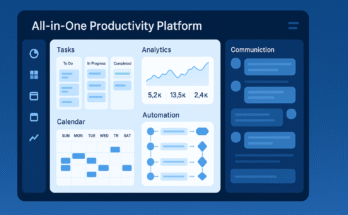As a business owner, you will experience obstacles running your business. As usual, you’ll try finding a solution to these problems, but it can become frustrating when you find yourself dealing with the same issues again and again.
You could be experiencing recurring problems because you could be dealing with the symptoms instead of fixing the core problems. So, rather than spending time and money solving a problem that seems not to go away, look deeper into what is causing them. This will help you diagnose issues and find your way back on track.
Waiting until a problem is severe can have negative consequences for your business. Some business problems come embedded in the design of the business model, making it hard for the management to comprehend their gravity. Business problems evolve as your business grows. Here are three ways to track business issues and help you stay on track.
1. Use an Issue Log
If you are running a project, your ultimate success is contingent on tracking, communicating, and solving issues. An issue log is a vital document that helps you record and track issues that negatively affect your projects.
An issue log helps you solve these problems by allowing you to record what needs to be solved, along with the person responsible for resolving the problem. You can create an issue log by building a spreadsheet or database.
An issue log is vital because it can help you improve communication with your team, making it easier to delegate duties and create accountability. An issue log also enables you to develop proactive problem-solving practices, reduce stress, boost morale, encourage collaboration, and make it easier to meet deadlines and stay on budget.
2. Hire Business Consultants
Business consultants provide expertise and an objective eye to guide your business in areas of strategy and management, operations, human resources, IT, sales and marketing, and funding. As a small or mid-sized company owner, you wear many hats. With so much waiting for you at once, you can easilyrun out of capacityor mental health.
Business consultants work closely with you to identify challenges, offer advice, and propose practical solutions. Therefore, hiring a business consultant guarantees you expertise since consultants have a deeper knowledge of business trends, new technologies, industry challenges, and processes, unlike internal employees.
Hiring business consultants saves you time as they already know best practices. Consultants are not emotionally invested in operations like you are as a business owner, making it easy for them to identify and address issues.
3. Use Analytics Software
Analytics software helps you prepare and analyze data to find and share actionable insights through a process called business intelligence reporting (BI). Call tracking analytics tools such as the RingCentral analytics portal can help you drive business decisions by delivering a superior user experience.
RingCentral analytics portal helps you set up automated critical monitoring of KPIs and parameters such as device connectivity status and call quality. The portal also allows you to receive real-time alerts on issues and proactively solve them before they impact users and leave you dealing with recurring issues that will require deeper analysis and investigation.
The RingCentral analytics portal provides data to help you monitor your business performance, streamline workflow, maximize coverage for callers, and identify areas of improvement.
Metrics to Track
Your business’s overall performance is dependent on how well you collect and analyze data. Withcountless business metrics, narrowing down to specific metrics that are vital can help boost overall profitability. Essential metrics to track include:
- Manager-employee connections. This deals with how managers handle the soft end of employee needs and employee acquisition and retention.
- Employee engagement as it correlates to the business output.
- Customer acquisition costs because if your customer costs you more than your profits, the business will never grow.
- On-time project deliveries.
- Profitability, because you need an understanding of how costs impact overall profitability.
- Website traffic if you are in the e-commerce space. These metrics help you understand your sales trends through tools such as Google Analytics.
- Return on investment to allow you to measure profits concerning an investment.
- Cash flow helps you adapt to unexpected changes.
- Revenue growth to calculate your business performance.
Implementing these into your business can help you grow without losing track of the day-to-day aspects. You can spend time on larger goals while maintaining the foundation originally set.




